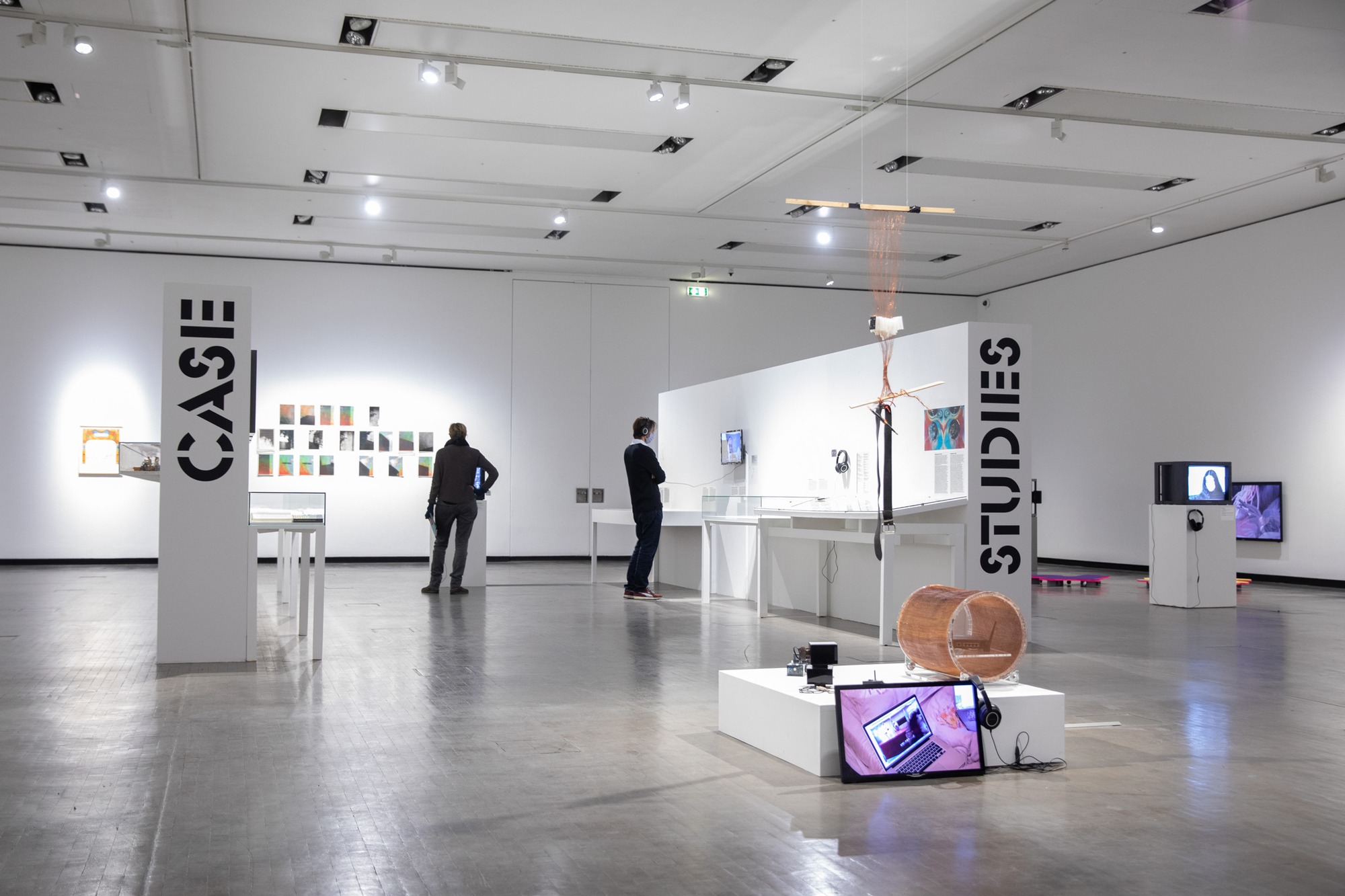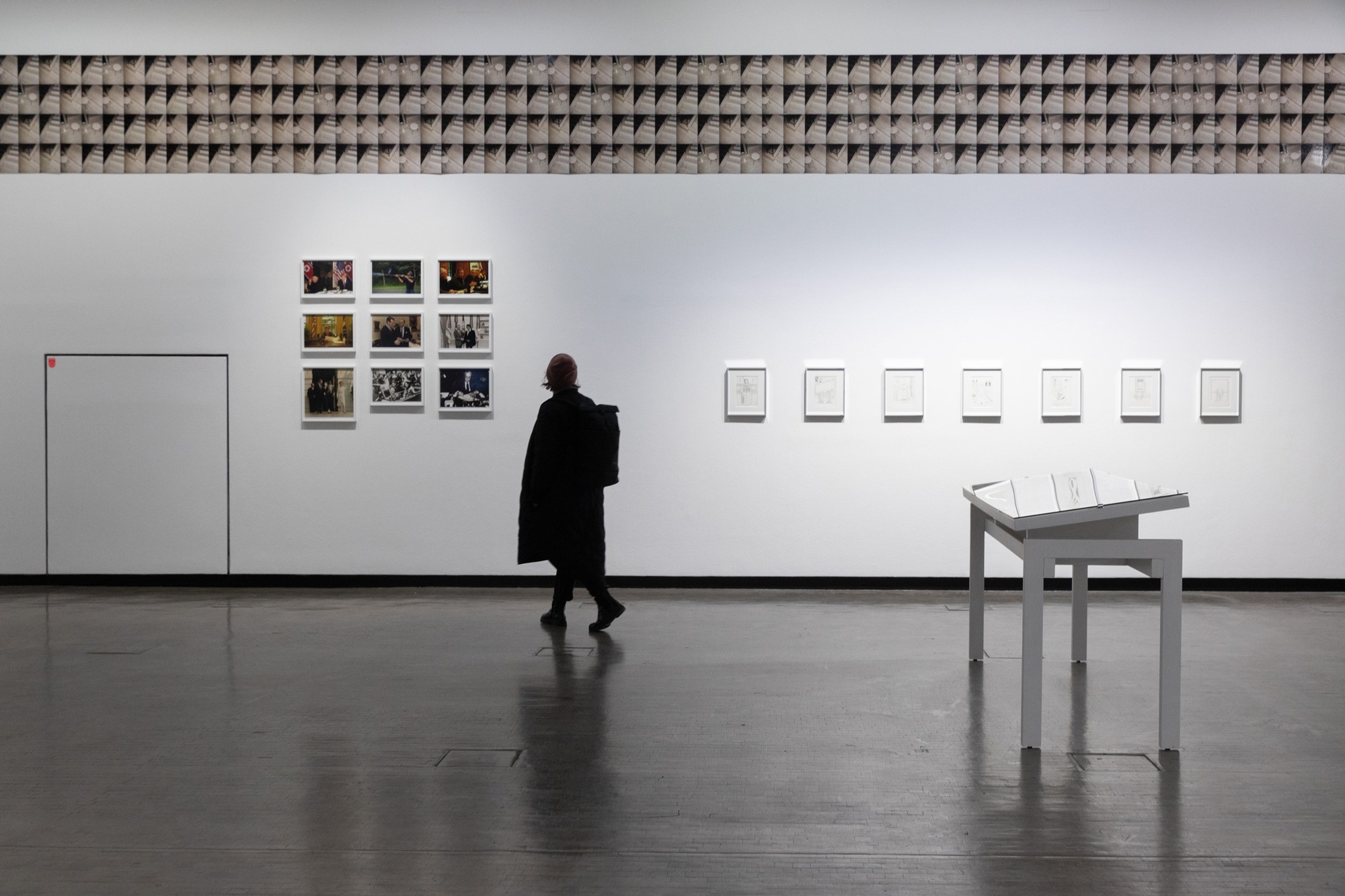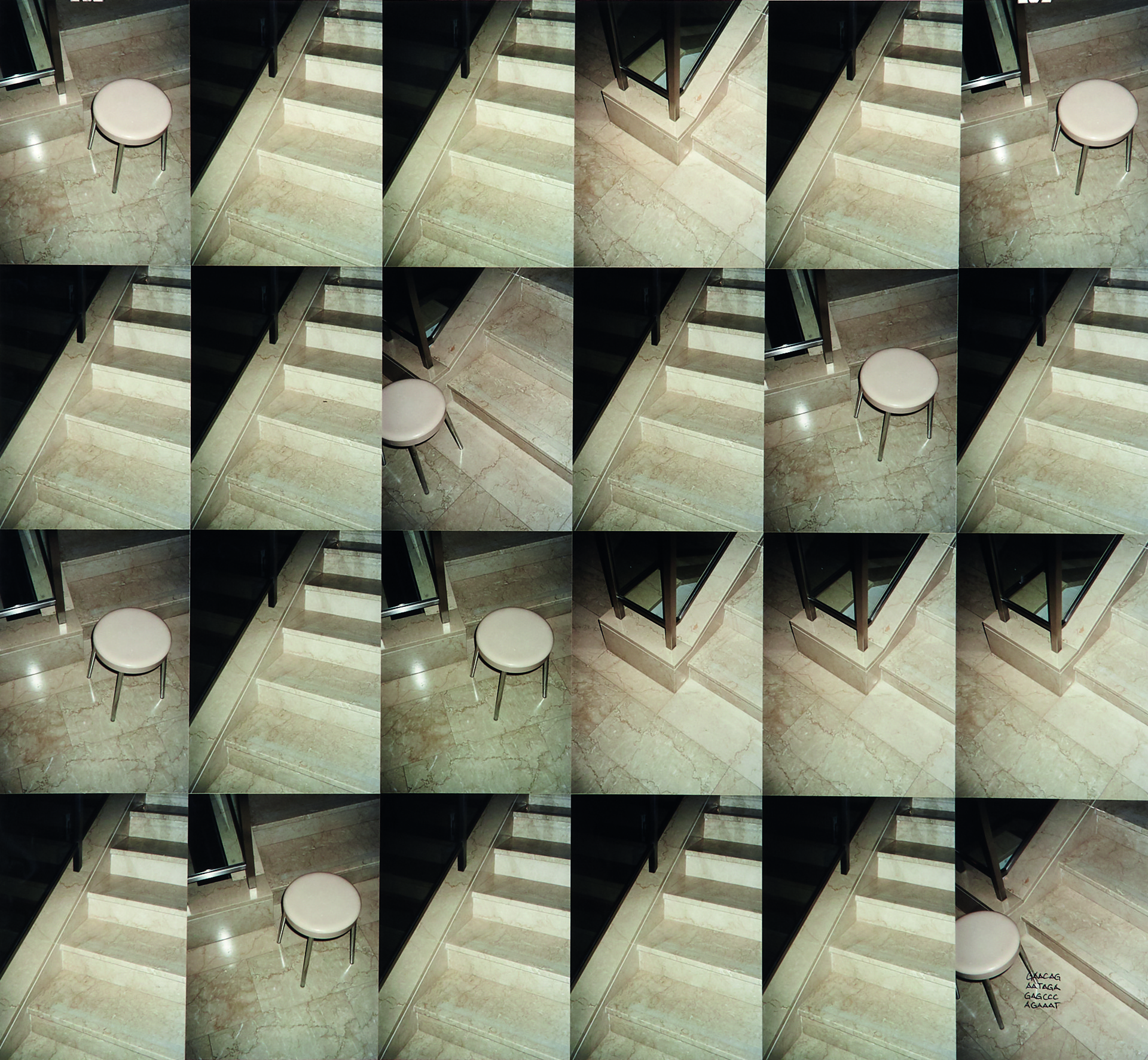Cybernetics of the Poor
18 Dec 2020 - 25 Apr 2021
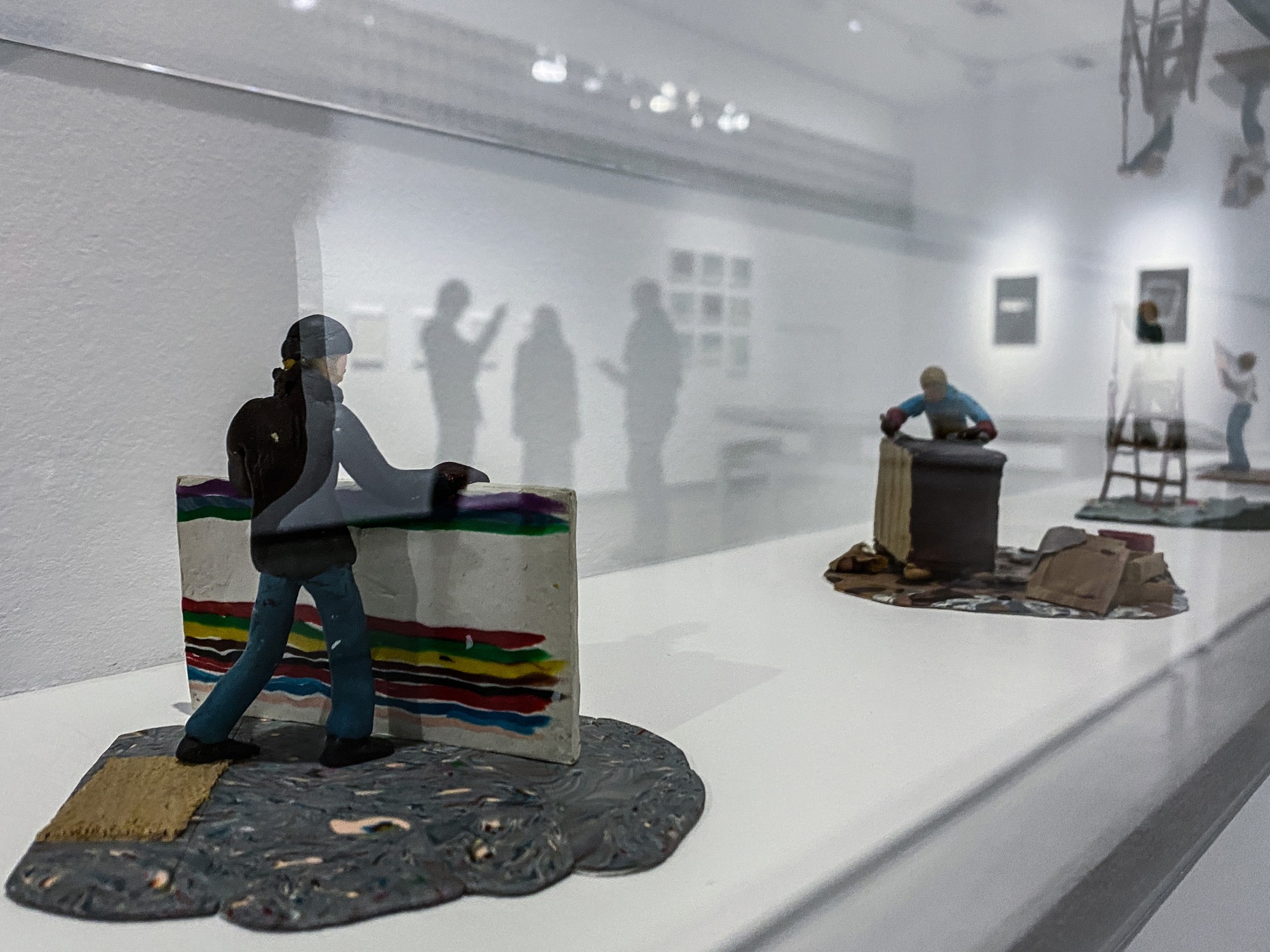
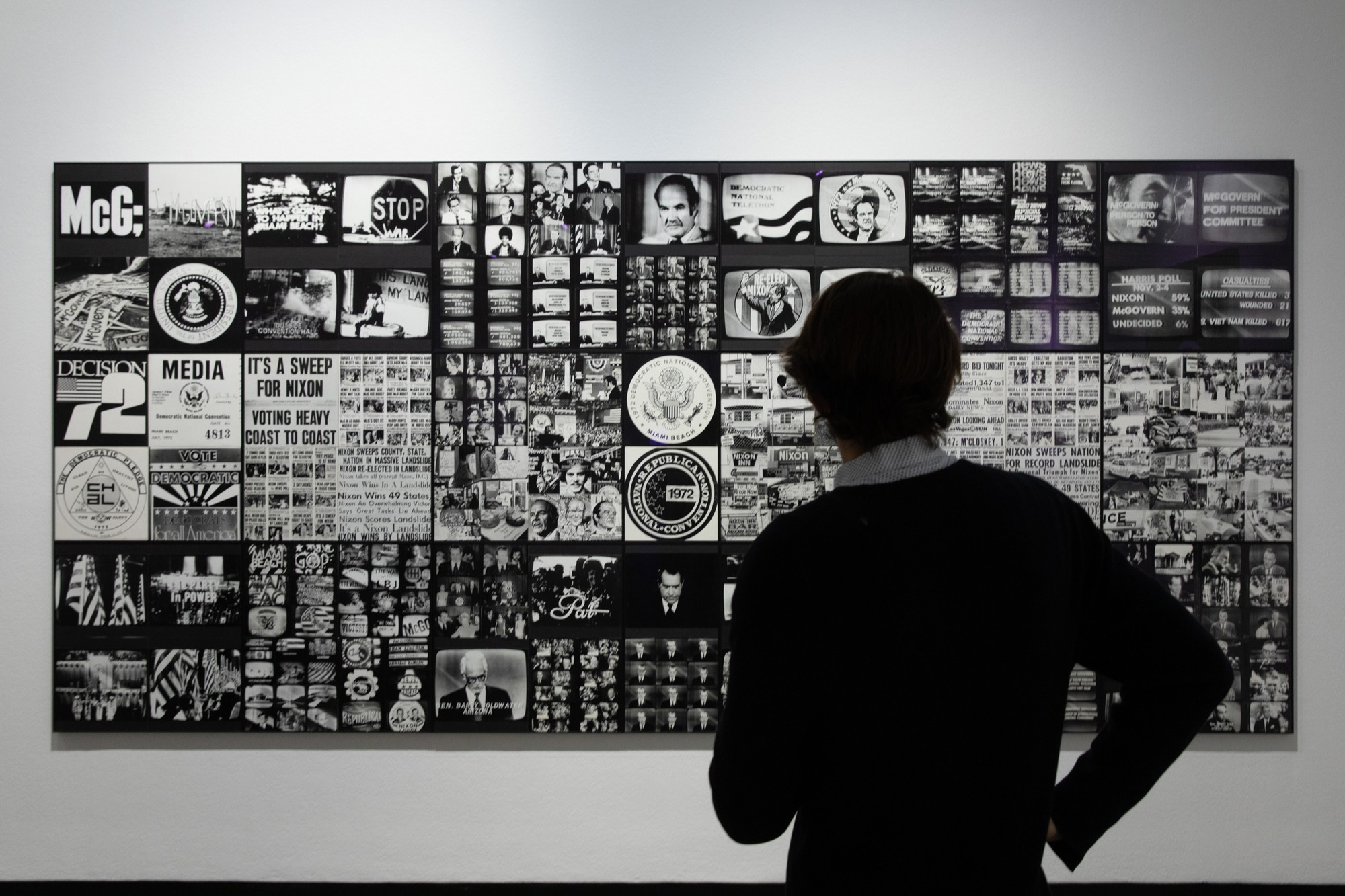
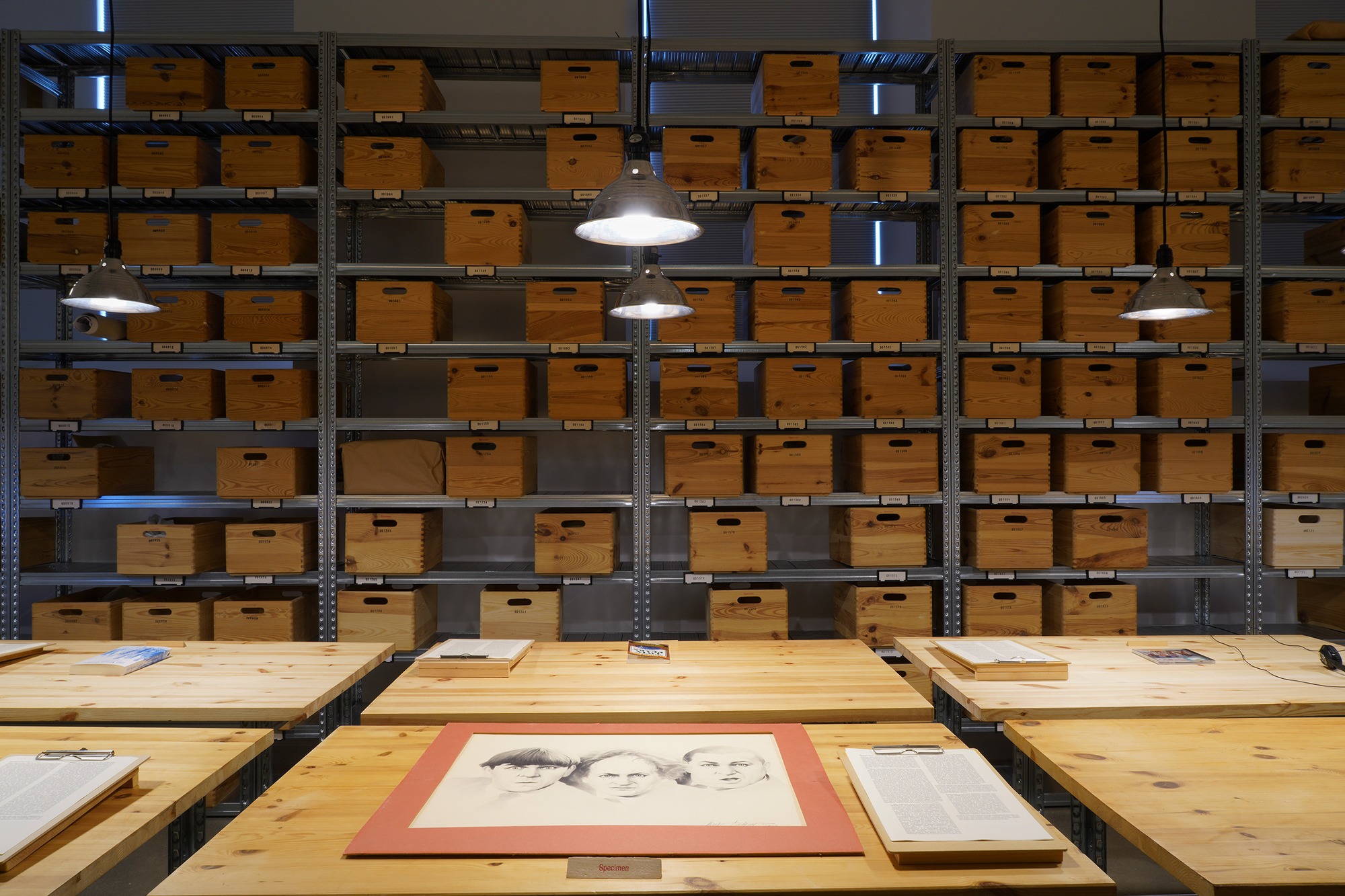

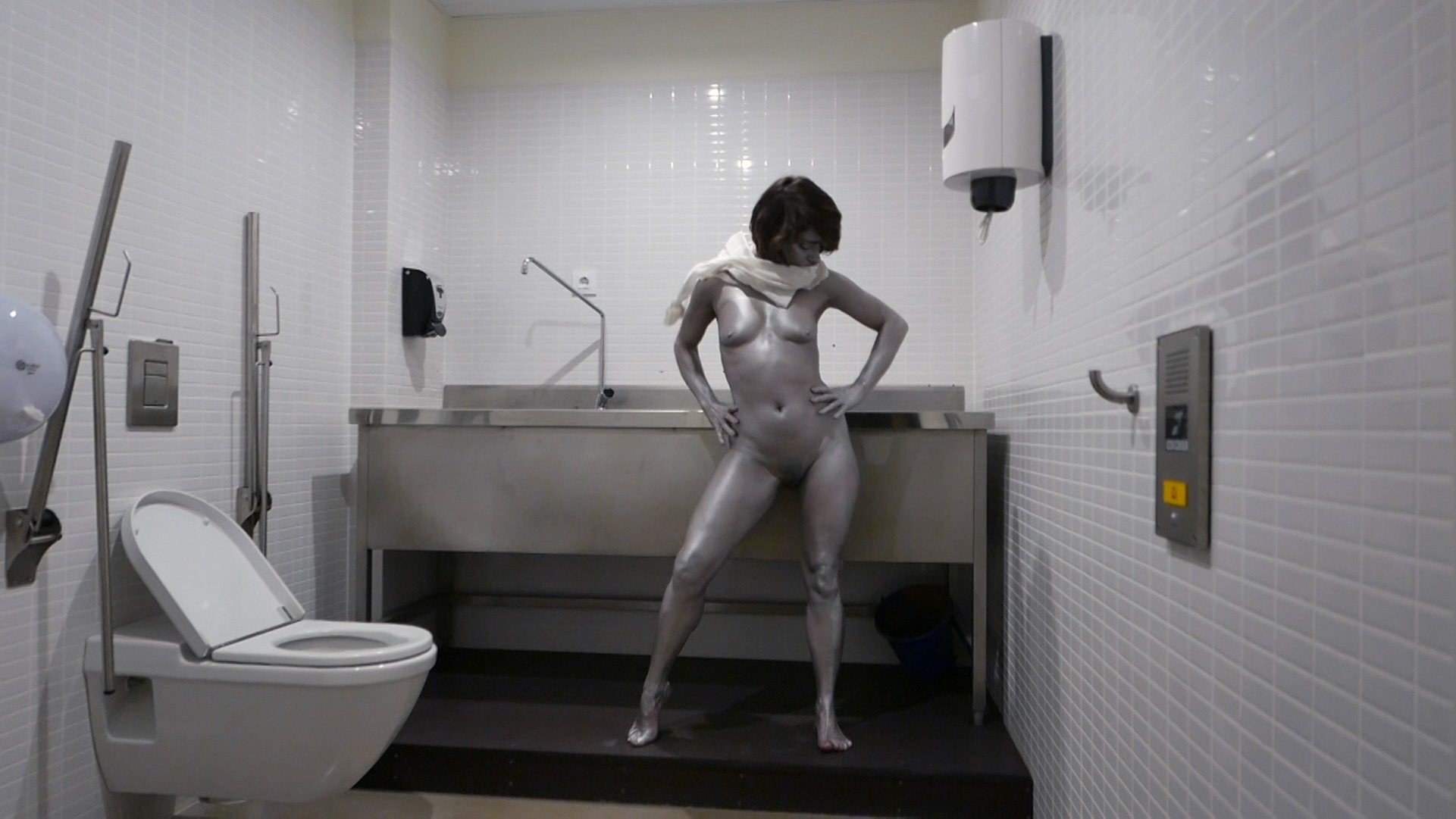
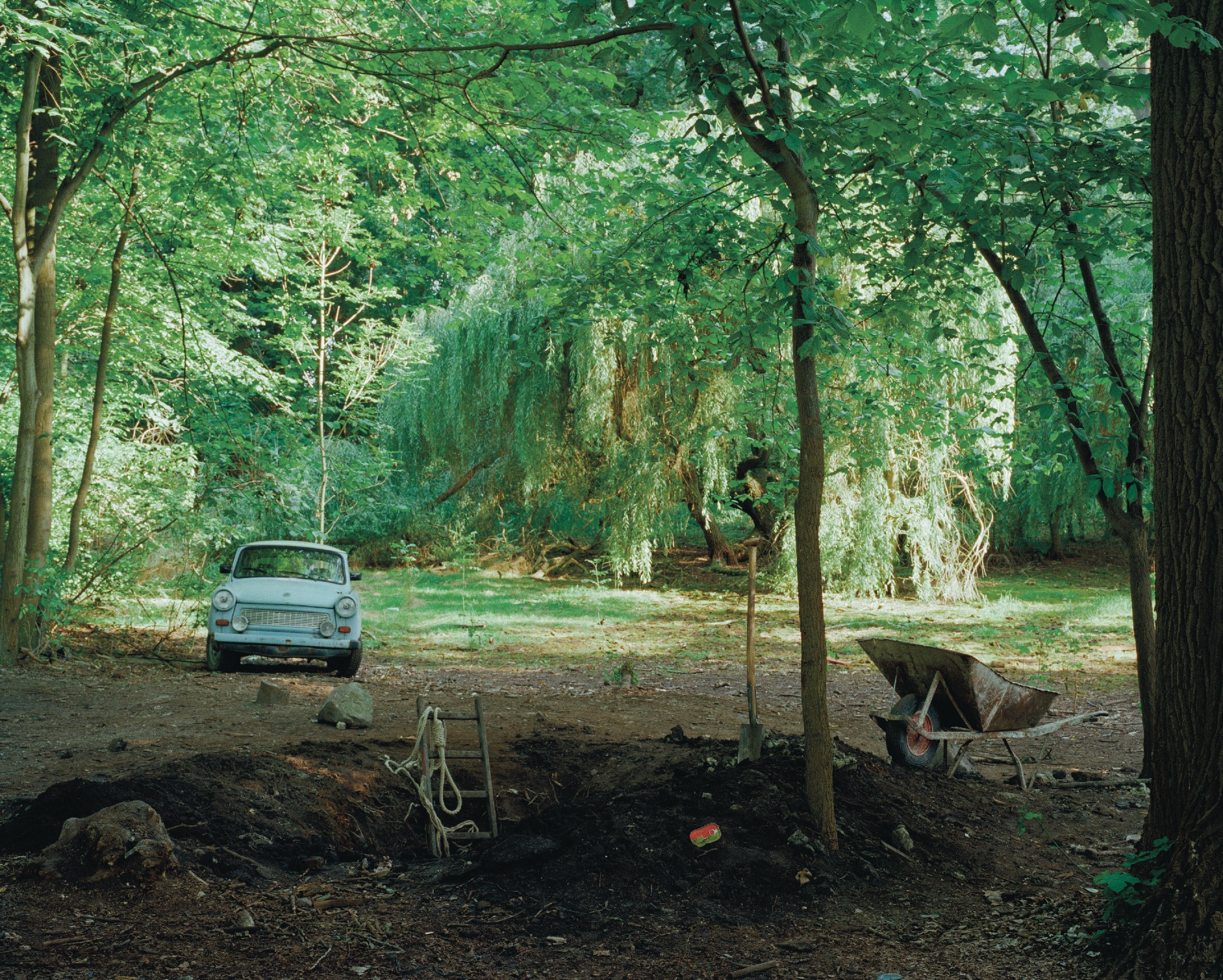
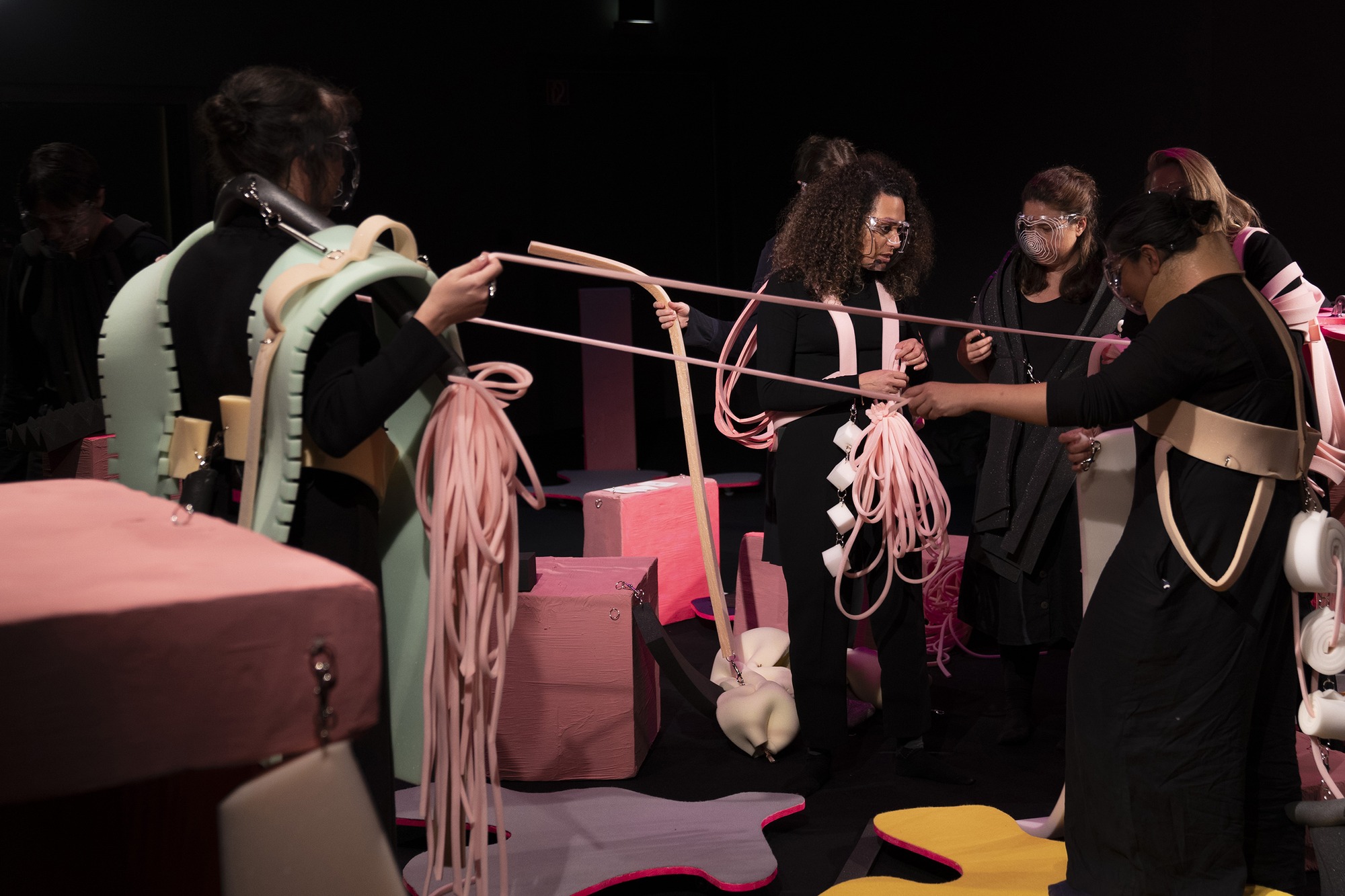
Artists: Robert Adrian X • Agency • Ana de Almeida, Alicja Rogalska & Vanja Smiljanić • Eleanor Antin • Cory Arcangel • Elena Asins • Paolo Cirio • Coleman Collins • Salvador Dalí & Philippe Halsman • Hanne Darboven • Jon Mikel Euba • Michael Hakimi • Douglas Huebler • Gema Intxausti • Mike Kelley • Ferdinand Kriwet • Agnieszka Kurant • Sharon Lockhart • Mario Navarro • Adrian Piper • Kameelah Janan Rasheed • Lili Reynaud-Dewar • Heinrich Riebesehl • Pedro G. Romero • Constanze Ruhm • Jörg Schlick • Camila Sposati • Axel Stockburger • Kathrin Stumreich • Isidoro Valcárcel Medina • Tanja Widmann • Oswald Wiener • ...
In cooperation with Tabakalera International Centre for Contemporary Culture, Donostia/San Sebastián
Cybernetics of the Poor examines the relationship between art and cybernetics and their intersections in the past and present. From the late 1940s on, the term cybernetics began to be used to describe self-regulating systems that measure, anticipate, and react in order to intervene in changing conditions. Initially relevant mostly in the fields of administration, planning, and criminology, and early ecology, under digital capitalism cybernetics has become an economic factor (see: big data). In such a cybernetic totality art must respond to a new situation: as a cybernetics of the poor.
This exhibition presents works that use the powerlessness of art—its poverty—vis-à-vis the cybernetic machine to propose countermodels. In addition, the show gathers recent and historical works by artists who believed in cybernetics as a participatory, playful practice or were pioneers in delineating a counter-cybernetics. How much of the “counterforce” (Thomas Pynchon) exists within art when it is conceived as a cybernetics of the poor?
Cybernetics of the Poor was shown in its first iteration at Tabakalera in the spring and summer of 2020. The subtitle of that exhibition, Tutorials, Exercises and Scores, named three different genres curators 2 Diedrich Diederichsen and Oier Etxeberria identified as using either anticybernetic or cybernetic artistic strategies. In addition to presenting a selection of examples of these genres, the show’s second installment in Vienna focuses on cybernetic instruments of social control and methods of circumventing it as well as the art market’s very own economic cybernetics.
Curators
Diedrich Diederichsen, born Hamburg in 1957. In the 1980s, editor and/ or publisher of music journals in Hamburg and Cologne (Sounds, Spex). Since the early 90s university teacher/guest professor in Frankfurt, Stuttgart, Pasadena, Offenbach, München, Weimar, Bremen, Gießen, Wien, Gainesville, Florida, St. Louis, Köln, Salzburg, and Los Angeles. From 1998 to 2007 Professor for Aesthetic Theory/Cultural Studies at Merz-Akademie, Stuttgart. Since 2006 Professor for Theory, Practice, and Communication of Contemporary Art at the Institute for Art History and Cultural Studies at the Academy of Fine Arts, Vienna. Since 1992 he has curated exhibitions in Zürich, Stuttgart, Los Angeles, Berlin, Graz, Vienna and elsewhere.
Most recent book publications: Love and Ethnology – The Colonial Dialectics of Sensitivity (after Hubert Fichte), Berlin/ New York: Sternberg Press, 2019 (English/German) (Co-ed. with Anselm Franke); Körpertreffer – Zur Ästhetik der nachpopulären Künste (Adorno Lectures), Berlin: Suhrkamp, 2017 (German); Über Pop-Musik, Köln: Kiepenheuer & Witsch, 2014 (German); The Whole Earth: California and the Disappearance of the Outside, Berlin/New York: Sternberg Press, 2013 (German/English) (Co-ed. with Anselm Franke) Diedrich Diederichsen is a contributor to several magazines, dailies and journals in the German speaking world, like Texte zur Kunst, Theater heute, Cargo, Spex, Die Zeit, die tageszeitung, and Süddeutsche Zeitung. diedrich-diederichsen.de
Oier Etxeberria has held the position of Head of Visual Arts at Tabakalera International Centre for Contemporary Culture, Donostia/ San Sebastián, Spain, since the end of 2019. Previously, he was responsible for the public program of the institution, developing projects and exhibitions such as Stimulants, Circulation, and Euphoria (2016–2018) or Ariketak: The second breath (2018–2019). Between 2010 and 2015, he was Head of the Cultural Area of the Cristina Enea Foundation, Donostia/San Sebastián.
Public & educational programs Dates and further information will be announced at www.kunsthallewien.at
Activations
Coleman Collins Guilt Coin During the exhibition Cybernetics of the Poor, Coleman Collins’s installation will be activated every Thursday from 2 – 6 pm through the sale of Guilt Coin in the booth he has put in place. This coin has been derived from the ultra-cybernetic Bitcoin currency and inspired by the word Schuld which in German means both “guilt” and “debt”. Therefore, 3 this currency plays with notions of moral and ethical control and the limits of value. You are welcome to buy your Guilt Coin, because we assume that you are either guilty or in debt. Aren’t you? Performers: Ana de Almeida • Diana Andrei • Carolin M. Brendel • Chandra Esser • Natalia Philomena Jobe • Mahsima Kalweit • Melanie Sien Min Lyn • Miriam Stoney • Lia Sudermann • Lucía Ugena
Jon Mikel Euba 29 Conditions for an Imposition. Setting of a Body that is Made Available for Writing
This proposal is directed and focused on the practice of writing. It takes place through an exercise of contrast, an activity where the public is invited to reflect on the set of systematic operations that make it possible to calculate and find the solution to different problems. 29 Conditions for an Imposition wants to draw attention to the – often unconscious – variables of the structure that generates all textual production. Writing is inconceivable without a choreographic dimension that, despite its invisibility, is self-imposed by the writer. For approximately one hour, one or two people seated at a table read the text 29 Conditions for an Imposition while the audience lie down on platforms that allow them to position themselves at different heights above the ground and listen to the reading.
Agency Assembly (Cybernetics of the Poor)
During Assembly (Cybernetics of the Poor), Agency will organize a public gathering around Thing 001698 (The Lexicon). The Lexicon concerns a controversy about an unauthorized printed version of the encyclopedia sections from the Harry Potter fan website The Harry Potter Lexicon. In March, Thing 001698 (The Lexicon) convenes an assembly at Kunsthalle Wien in order to bear witness. Agency will invite a diverse group of concerned guests to “resonate”: a researcher of intellectual property law, a writer, a Harry Potter fan club representative, and a literature historian.
Symposium
Cybernetics of the Poor
Curated by Ana de Almeida, Nina Kerschbaumer and Inka Meißner in collaboration with participants in the Cybernetics of the Poor seminar (Master in Critical Studies, Academy of Fine Arts Vienna) This is the concluding symposium of the Sharing and Responding event series. It was preceded by two online workshops which took place in June 2020. Organized by Ana de Almeida, Anke Dyes, Nina Kerschbaumer und Inka Meißner, the series examines cybernetic structures in language and art, planning and surveillance. Cybernetics, in this context, pertains to artistically appropriated techniques of control and governance. Through experimental, performative, and anticipative forms of knowledge exchange, the event series focuses on the fragility of control systems.
Students’ interventions as part of the Cybernetics of the Poor seminar (Master in Critical Studies course, Academy of Fine Arts Vienna)
Guided tours
My View Tours In the series My View, we invite experts, amateurs and figures of interest to present their personal perspective on the exhibition. For this exhibition we are looking forward to tours with: Ana de Almeida, Anke Dyes, Peter Fleissner, Nina Kerschbaumer, Inka Meißner, Arantzazu Saratxaga, Felix Stalder, Axel Stockburger, and students from the Cybernetics of the Poor seminar at the Academy of Fine Arts Vienna.
Curators’ tours
The curators of the exhibition – Diedrich Diederichsen and Oier Etxeberria – will discuss topics thematized by the works presented in the show and elaborate on their background.
Sunday tours
Shady Profiles and Surprising Accounts With: Wolfgang Brunner • Andrea Hubin • Michaela Schmidlechner • Michael Simku • Martin Walkner Discover the exhibition together with our art educators every Sunday at 4 pm and discuss the context and background of the exhibited works. (Guided tour in German.)
Program for Kids & Families
When Characters Tell
Sat 23/1 • 20/2 • 6/3 2021 • 10 am– noon Kids’ workshops as part of wienXtra for children from 6 – 10 years How can we show that 1,500 cyclists per day pass the Museumsquartier without simply writing the number down? How can we simultaneously show that 800 of them are women and 50 are children? How do we design a symbol that everyone can understand immediately. And which new emojis do we urgently need? We are looking forward to your ideas!

